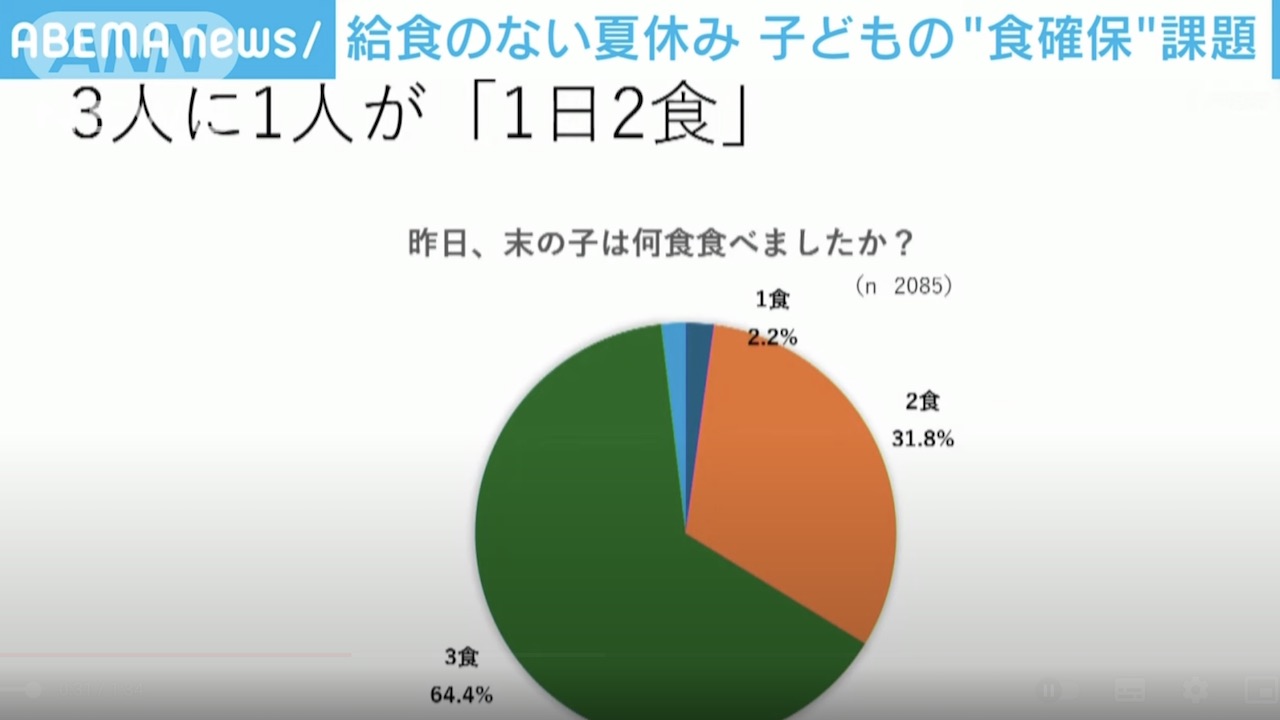TOKYO, Aug 03 (News On Japan) - An NPO survey revealed that 30% of single-parent families in Japan report having only two meals a day during the summer break. As prices continue to rise, securing adequate food for children has become a pressing issue.
According to a survey conducted by the "National Council of Single-Parent Family Support Groups" from July 20 to 28, 31.8% of single-parent households reported having "two meals a day," and 2.2% reported having "one meal a day."
In addition to the lack of school lunches during the summer break, the impact of rising prices has led to severe living conditions, with some reporting measures like "stretching meals with rice gruel" and "reducing air conditioner use."
Amid concerns about securing safe spaces and food for children, a children's cafeteria in Koto Ward, Tokyo, has started distributing bread, snacks, and juice to children participating in morning radio exercises during the summer break.
Participants commented, "I feel energized after doing the radio exercises early in the morning. It was great to receive snacks because I worked hard," and "It's a bit tough having to think about lunch too. I'm grateful for even a little time to connect with friends."
Yuriko Morio, the representative of Toyosu Children's Cafeteria, who organized the initiative, stated, "We want to protect children's spaces within the community."
Source: ANN
















